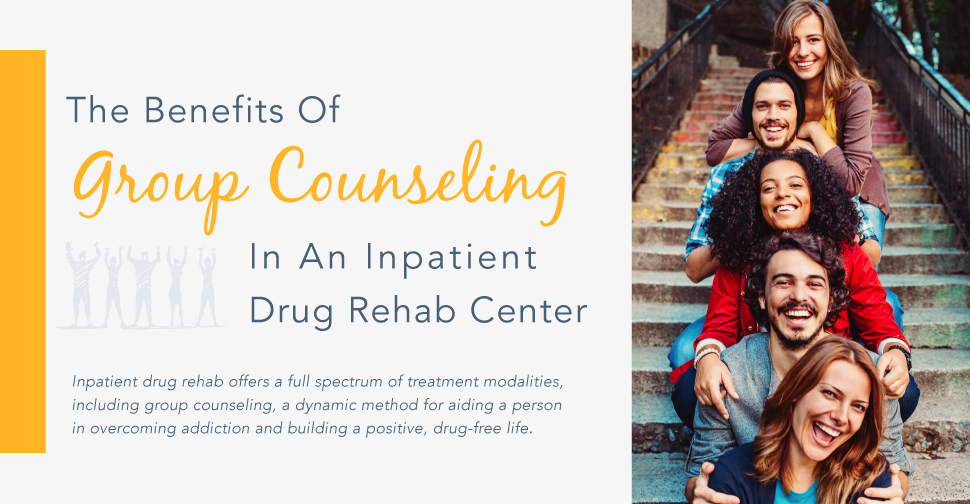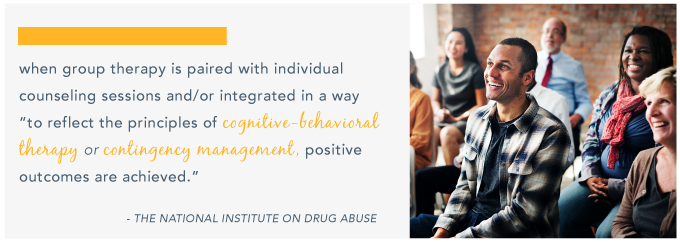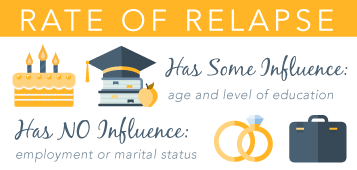
Inpatient drug rehab offers a comprehensive array of treatment methods and modalities geared towards creating an environment that is most conducive towards fostering the stability and outreach that is necessary to achieve sobriety and teach people about how to maintain it for the long run. Though there is surely a lot of work to be done on an individual level, there are further ways treatment can engage you in taking advantage of the peer relationships that you will encounter within rehab. Engaging people who are also working on sobriety goals may serve to better prepare you for your recovery.
Understanding The Importance Of Inpatient Drug Treatment
In order for treatment to be effective, it has to be directed to a person’s unique needs. Some people require a level of care and attentiveness, set against a more developed arsenal of treatment modalities than that which is offered within outpatient treatment. Residential treatment allows a person to have access to continual care, 24 hours a day, throughout the duration of their time within a facility.
One thing that greatly stands apart from outpatient care is the type of individuals a person will encounter during their treatment. One of the possible downfalls of outpatient treatment is that during this care, a person is allowed to return home, thus allowing them continued access to unsupportive peers or negative influences should they choose. For some, these social elements can make a person’s journey towards sobriety very difficult by providing an absence of well-developed support and a means towards temptation or harmful triggers that may lead a person to continue using.
On the other hand, due to its residential setting, inpatient drug rehab removes the possibility of these temptations and negative influences. Instead, inpatient treatment provides a person with a compassionate staff whose entire focus is on creating a stable, encouraging, and proactive environment focused on sobriety. In addition, you will also spend a greater depth of time with your peers, finding additional time to get to know them, in a way that may provide you with unparalleled access to these individual’s accounts of their personal journeys through addiction.
Within this framework, by getting to know these people, you are offered an opportunity to break through the sense of isolation your addiction may have imposed, learning instead that you are not alone, in way that could empower you to move forward in your recovery. In addition, you may find that you learn more diverse coping skills and a measure of accountability that strengthens you both within your time in treatment, and beyond, as you protect your sobriety against threats of relapse.
Within this time at an inpatient facility, a person will experience various methods of treatment, depending on the scope of care the specific facility offers. Each, by design, will be implemented in a way that is conducive towards overcoming your addiction and gleaning the strength to create a lasting recovery.
The Role Of Counseling Within Treatment
Various forms of psychotherapy are typically offered due to their success within addiction medicine. Supported by countless scientific studies, these therapeutic methods will offer you or your family member a means by which to examine your thoughts, emotions, and behaviors in a way that will root out any negative patterns and instead develop and replace them with more positive and proactive ones.
Oftentimes, addiction is borne from preexisting negative emotions or co-occurring disorders, such as anxiety, depression, and even various types of eating disorders, such as anorexia nervosa. Within addiction, the drug or alcohol addiction itself may serve to further accelerate or even create some of these factors as well. In order to counter this, therapy and counseling looks at the root of these maladaptive elements within your life and works towards understanding them in a way that can help you both overcome them and learn how to not fall prey to them in the future.
In regards to co-occurring disorders, many therapeutic methods have been proven to work effectively towards treating not just addiction but any accompanying dual diagnosis concerns. It is important to root out and treat these factors, as if left untreated, they could continue to plague a person in a way that threatens their sobriety and draws them back into compulsive patterns of drug-seeking and using.

The National Institute on Drug Abuse acknowledges the importance of group therapy within treatment, noting that when paired with individual counseling sessions and/or integrated in a way “to reflect the principles of cognitive-behavioral therapy or contingency management, positive outcomes are achieved.” In addition, programs may also utilize other research-based therapeutic methods, including one that is increasingly being touted as a critical and transformative tool within addiction treatment—dialectical behavioral therapy (DBT).
Group Counseling: A Dynamic Modality Within Comprehensive Treatment
An excerpt from the Substance Abuse and Mental Health Services Administration’s Treatment Improvement Protocols offers a powerful directive as to the import and impact of group therapy within substance abuse treatment, stating that “The natural propensity of human beings to congregate makes group therapy a powerful therapeutic tool for treating substance abuse, one that is as helpful as individual therapy, and sometimes more successful.”
Essentially, this tells us that a large portion of the benefit of group counseling lies in the human condition itself—by nature, individuals seek the connection and influence of those around them, especially individuals that share common experiences or expectations, such as those you might find within the context of group counseling within inpatient drug treatment. It is by forging these connections within treatment, that many individuals find the support and resolve that is crucial towards building a life free from drugs or alcohol.
The article asserts that in certain cases, group therapy may be of greater reward during treatment that even individual therapy. Why is this? They note that “In the hands of a skilled, well‐trained group leader, the potential curative forces inherent in a group can be harnessed and directed to foster healthy attachments, provide positive peer reinforcement, act as a forum for self‐expression, and teach new social skills.”

Within group therapy, individuals will have access to insights, direction, accountability, and encouragement that exists in a dimension beyond what they find in individual therapy. Together, these two facets of counseling—individual and group—may work adjacently in offering a person a more well-rounded, yet focused therapeutic backbone to base their recovery efforts upon. Group therapy offers a setting that helps to encourage people towards the change and stability that is necessary to maintain a drug-free life in the long term.
Group Therapy Can Aid In Preventing Relapse
The goal of therapy and counseling is two-fold—it stands to not only help a person achieve sobriety during their time within treatment but as a tool to build positive and long-lasting skills that can help a person ward off threats of relapse. The truth is, relapse is a very real concern for every individual that leaves treatment. In order to combat this threat, it is imperative that you choose a good inpatient program that utilizes the best therapeutic methods. Both dialectical behavioral therapy and cognitive behavioral therapy (CBT) have been shown to aid individuals within treatment in forging a drug-free life and in helping them to create an adaptable set of skills to utilize in maintaining their recovery after they leave treatment.

A second publication published by the International Journal of Rehabilitation examined CBT within a group setting for addiction treatment. Specifically, scientists examined the role of CBT in reducing rates of relapse after treatment in a group of participants who were utilizing methadone within their treatment program. What they found was that CBT decreased rates of relapse, especially when paired with medication, in a way that was greater than the rates of individuals who received only the medication. The study also noted that a person’s age and level of education do in some cases, influence relapse rates, however, their results found that a person’s marital or employment status and the time in which they began substance use did not effect the results in this instance.
This study also outlined some of the many benefits that group therapy may have for individuals within treatment, and beyond, including:
- Creating and instilling a sense of hope and optimism used to work successfully through the addiction
- Providing individuals with a way to connect to and learn from others who have struggled similarly
- Helping to ward off the sense of isolation the addictive life may have created
- The “creation of sense of altruism and helping others in solving problems”
- Creating an environment that helps people to denounce a poor and even false self-image
- Aids in “nurturing socialization techniques”
- Enhancing interpersonal and communication skills
- Portraying and creating precedents for positive behaviors and more healthful ways to react within certain family situations
- Constructing a means to help a person develop a more positive way of behaving, thinking, and feeling within their life.
Addiction, treatment, and recovery can be a harrowing journey alone. Group therapy helps to shed light on the fact that you are not alone, instead revealing the many ways that you can utilize connections with others in recovery to support your personal recovery goals.
Find The Best Facility To Help You Heal
We want you to succeed in your quest towards sobriety. If you’re uncertain as to how to determine which facility is best for your needs, or that of a loved one, please take the time to reach out to us. Our staff is highly trained in each aspect of successful inpatient treatment and understands the many demands and questions you might have.
Please, contact DrugRehab.org today. We can help you begin build a better and sober life.
Sources
U.S. National Library of Medicine — Substance Abuse Treatment: Group Therapy
National Institute on Drug Abuse — Types of Treatment Programs
OMICS International — The Effect of Cognitive-Behavioral Group Therapy on Decrease in Addiction Relapse in Randomly Assigned Addicts under Drug Therapy: A Statistical Analysis

